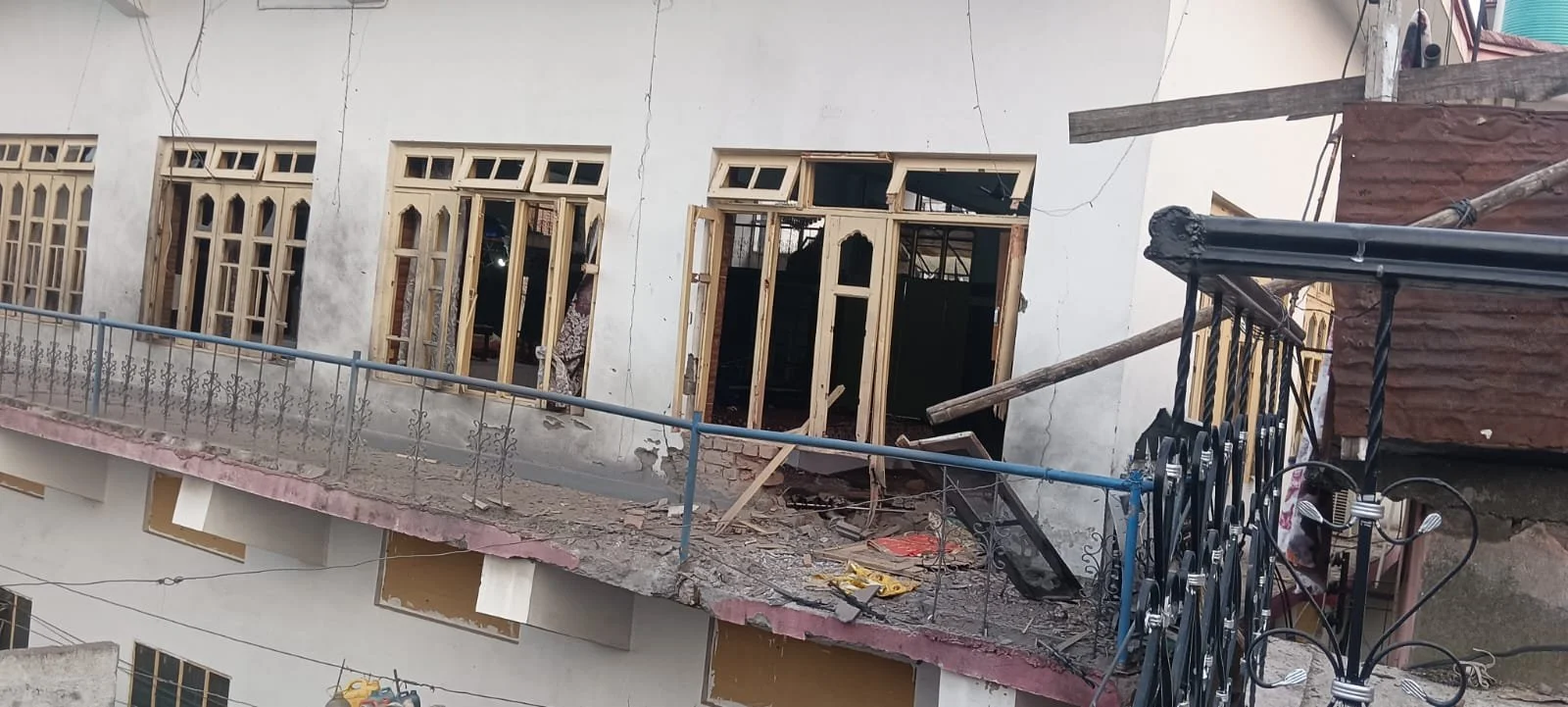A recent concert for peace in Gaza brought together Jews and Palestinians at a Catholic church in Santiago. Some 500 people attended the concert for cello, flute and classical guitar, with two female voices, organized by the Archbishop of Santiago, Cardinal Fernando Chomalí. The archbishop, who organized the event, is a descendant of Palestinian immigrants.
Read More(ANALYSIS) On June 21, 2025, Alex Sobel, a member of the U.K. Parliament, delivered a letter to Pope Leo XIV after a special audience for members of the Inter-Parliamentary Union (IPU), in the Hall of Benediction, the Vatican, calling upon him to stand up for Jimmy Lai, who has been imprisoned by Hong Kong authorities since December 2020.
Read MoreRussia continued to persecute pastors and shutter churches within its borders and in territories it occupies in Ukraine, the U.S. Commission on International Religious Freedom said in an updated report. The government has imprisoned, tortured and levied monetary fines against many religious leaders, including Protestant, Catholic, Orthodox Church of Ukraine and others.
Read More(ANALYSIS) The 12-day confrontation between Iran and Israel in June 2025 may not have escalated into a full-scale regional war, but it marks a potentially critical turning point in Iran’s internal political landscape. Though the Islamic Republic has entered into direct conflict with a foreign adversary before, it has never done so while so militarily weakened, internally fractured and increasingly alienated from its own population.
Read More(ANALYSIS) A new study has found nearly 950 hate-related incidents in India during the first year of the main ruling party’s third term. Religious minorities, especially Muslims and Christians, were the main targets of violence and hate speech. This rise in unchecked and largely unpunished hostility should concern all citizens.
Read More(ANALYSIS) Taiwan’s international rating on freedom of religion is undisputedly very high. The 2021 Report on International Religious Freedom, published by the U.S. Department of State, also noted Taiwan’s constitutional protection of the freedom of religion as well as the diversity of religious beliefs, but questions are asked about how freely can one practice their religion.
Read More(ANALYSIS) Whatever one’s position in a conflict, certain actions cannot be justified. Targeting civilians, destroying essential services, blocking aid, using civilian areas for military purposes or punishing entire populations for the acts of a few are all violations of international law and human conscience.
Read MoreWhen a shell slammed into a madrassa (an Islamic school) housing over 1,200 children, its caretaker, Sayyed Habib, didn’t dial the army or the police. He didn’t call emergency services. He called Pradeep Sharma, a Hindu and former lawmaker, and his best friend since ninth grade. it was an example of how people of differing faiths found it in their hearts to help one another.
Read MoreThe 500 Christians had already fled terrorism at home and found temporary shelter in storefronts transformed into living quarters in downtown Yelewata. But as they slept overnight on June 13, men identified as militant Fulani attacked from multiple sides.
Read More(ANALYSIS) The central government’s gazette notification for India’s upcoming 2027 census omits the word “caste.” This, despite earlier public assurances that caste data would be collected. The absence of explicit mention has triggered accusations of deliberate evasion. Is the reluctance tied to the disruptive potential of a full caste enumeration—one that could unsettle the ideological foundations of Hindu nationalist politics?
Read More(ANALYSIS) To this day, there are no national memorials for the victims. Instead, triumphalist military monuments, many of them built in Tamil-majority areas, celebrate a victory in a war whose collateral damage amounted to war crimes and crimes against humanity.
Read MoreAs the evening crowd arrived for services Thursday evening at Young Israel of Century City, Benny Factor watched for updates on his phone, which was leaned against a tissue box on the table in front of him. The chyron of an Israeli TV channel he was streaming told the story: “Happening now,” it said in Hebrew: “A wave of attacks has begun in Iran.”
Read MoreThe Ahmadiyya community in Pakistan has long experienced significant constraints on its religious practices. From not being allowed to call their places of worship “mosques” or use Islamic terms such as “Azan” (call to prayer) to not being able to vote because Ahmadis must either renounce their faith or agree to be placed on a separate electoral list categorizing them as “non-Muslim.”
Read MoreChina is operating a vast network of “colonial” boarding schools across Tibet that forcibly removes children—including those as young as four—from their families, a new report released Wednesday claims. The report, published by the U.S.-based Tibet Action Institute, says the system is designed not for education access but for political assimilation, cutting children off from their language, culture and religion.
Read MoreSuper-intelligent computers that go bad isn’t a new concept, as fans of the “Terminator” franchise know all to well. However, when I think about digital evil, I remember the haunting voice of the HAL 9000 supercomputer in 1968 sci-fi classic “2001: A Space Odyssey.” Think about this: That was a voice that Sir Anthony Hopkins heard in his head as he prepared to play the brilliant serial killer Hannibal Lecter in “The Silence of the Lambs.”
Read MoreIn India, caste oppression is a persistent and insidious reality that continues to affect millions, even in communities that formally reject caste divisions. The Christian community, which upholds the belief in equality before God, is not exempt from this social inequality. Dalit Christians, in particular, face discrimination and exclusion — even within church spaces. However, a growing number of Dalit Christians are challenging this oppression.
Read MoreIndian authorities have allegedly “abandoned” — rather than deported — 40 Rohingya refugees in international waters near the Myanmar maritime border, forcing women, children and the elderly to swim to safety using life jackets. The action could be seen as a “secret rendition,” a term used to describe the covert transfer of individuals across borders without legal process.
Read MoreMany Christian families reported living in fear — facing threats of social boycott, electricity cuts and verbal abuse. Some have left their villages or publicly disavowed their faith to avoid conflict. Others now live with the trauma of having been denied the chance to grieve with dignity. In cases where women were disrobed or attacked during mourning, the abuse was not only communal but gendered.
Read MoreNigeria’s size, population and underdeveloped infrastructure make full and accurate data on such attacks difficult to obtain, the U.S. Commission on International Religious Freedom said at a Capitol Hill hearing on religious freedom in Nigeria, but the country is the deadliest in the world for Christians.
Read MoreA newscast from Israel streamed on a large screen, and a woman speaking into a microphone translated updates into English: “Hamas announces it has released Edan Alexander.” “The Red Cross says it’s on the scene but does not yet have Alexander.” “We have confirmation that Alexander has been released.” “Alexander is officially in the hands of the IDF.” “Alexander has had a first conversation with his mother and is telling jokes.”
Read More



















